Leafy greens contain a healthy mix of vitamins, minerals, protein, antioxidants, and other nutrients. Regular consumption of greens such as spinach, kale, and coriander may help support heart health, regulate blood sugar levels, strengthen the immune system, and promote cell growth and repair. Including a variety of leafy greens in your daily diet is a simple yet effective way to enhance overall well-being1.
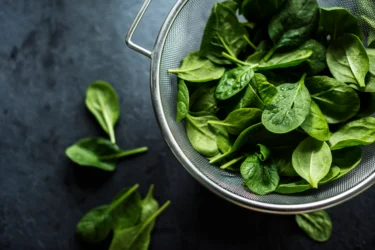
Spinach (palak) is rich in iron and fiber, low in fat and cholesterol. Studies1 have shown that spinach may help with digestion, improve eye health, boost energy levels, strengthen bones, and even lower blood sugar and pressure. As a part of every world cuisine, it is the most common green leafy vegetable found in India.
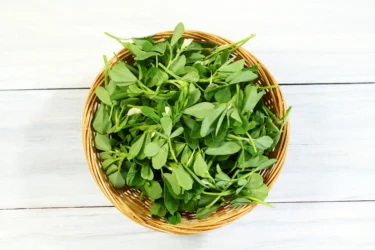
Fenugreek (methi) leaves are known to improve blood sugar control, insulin levels, and metabolism2. In Indian food, it is used extensively in rotis and curries.
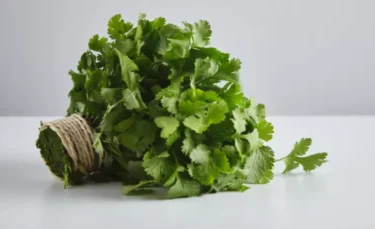
Parsley is packed with vitamins A and C. It offers several health benefits, such as reducing inflammation and pain, helping with digestion, controlling blood sugar, and boosting the immune system. Studies3 also show that it may be beneficial in reducing anxiety and depression.
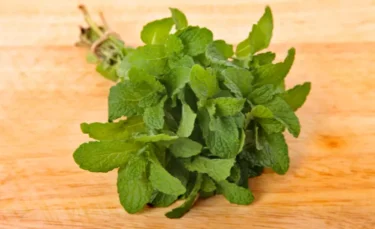
Besides freshening our palate, mint (pudina) helps with weight loss, depression, nausea, asthma, and skin problems. It also has several other benefits, like improving brain function, reducing pain during breastfeeding, and helping reduce symptoms of common cold1.
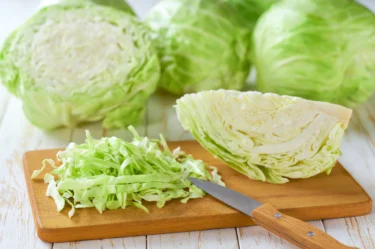
Cabbage is richer in vitamin C than oranges. Cabbage can help with skin problems due to its healing and anti-inflammatory properties. Nutrients present in cabbage may also help reduce cholesterol, improve digestion, and lower blood pressure4. Therefore, cabbage is often considered a great leafy green vegetable that helps to maintain a healthy heart.
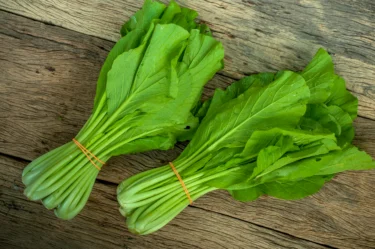
Regular consumption of these ensures blood and liver detoxification, lowering cholesterol, and improving skin and eye health1.
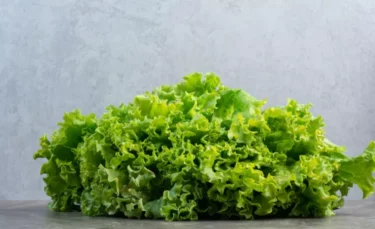
Lettuce is rich in essential vitamins, nutrients, and minerals that lower blood sugar, protect neural health, and fight cancer cells5.

Curry leaves (kadhipatta) can be beneficial for stomach ailments, diabetes, and to balance cholesterol. Studies6 have shown that curry leaf extract may help kill breast tumor cells by reducing cell growth and harmful effects in the body.
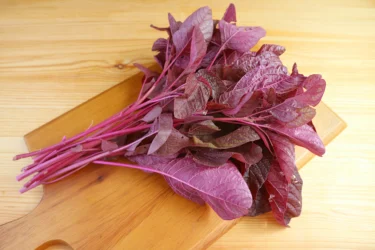
It improves cardiovascular health, strengthens bones, and stops hair loss1.
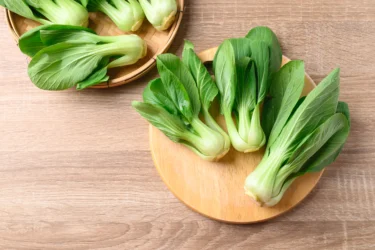
Bok choy is known as Chinese cabbage or pak choi, bok choy is a nutrient-rich cruciferous vegetable. It’s an excellent source of vitamins and minerals, including vitamin C, vitamin K, and folate. One of its key components is selenium, a trace mineral that supports the immune system and helps protect the body from oxidative stress and infection. With its mild flavor and crisp texture, bok choy is a versatile and healthy addition to a balanced diet4.
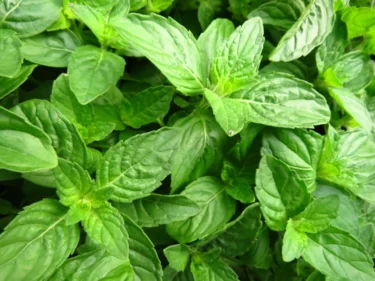
In Indian traditional medicine, basil (tulsi) leaf extracts have been used to manage conditions like bronchitis, rheumatism, and fever. Other known therapeutic uses include managing nerve pain, headaches, reducing blood pressure, and regulating blood sugar levels7. There are different types of basil leaves, like sweet, Greek, Thai, holy, cinnamon, and lettuce basil, each with its unique set of health benefits.
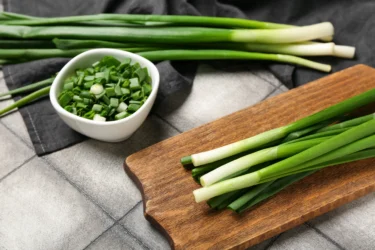
Green onions are rich in essential minerals like potassium, calcium, magnesium, and phosphorus, which support nerve function, muscle contraction, bone health, and blood pressure regulation8.
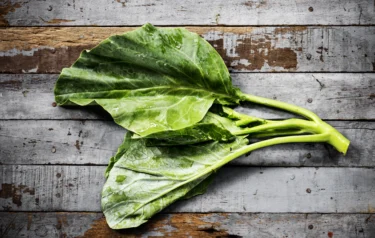
Collard greens contain properties that may offer various health benefits. These include supporting the body’s natural detoxification processes, helping to lower blood pressure, and potentially reducing the risk of certain conditions such as cancer, arthritis, and muscular dystrophy5.
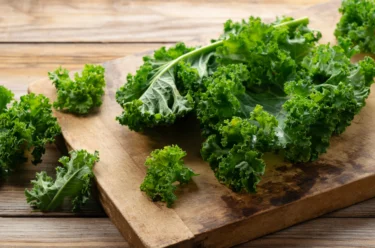
Kale is a healthy addition to smoothies and salads. It may help prevent cancer metastasis, support detoxification, enhance heart function, and contribute to healthy brain development4.

Beet leaves are known for their analgesic properties. It may help improve digestion, clears acne, increases appetite, and promote oral health. It also has various other antiseptic and antioxidant benefits5.
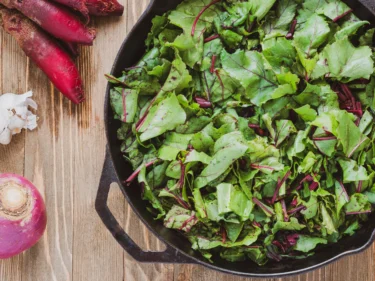
Beet greens promote healthy bones, teeth, skin, and blood vessels. They improve vision, power up the immune system, and maintain cellular health4.

Watercress is a nutrient rich leafy green that is linked to a lower risk of heart disease, metabolic disorders, muscle and bone problems, and some cancers4.
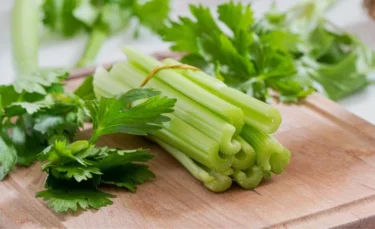
Celery may improve cardiovascular health, reduces blood pressure, decreases cholesterol, regulates blood sugar, and boosts digestion and weight loss9.
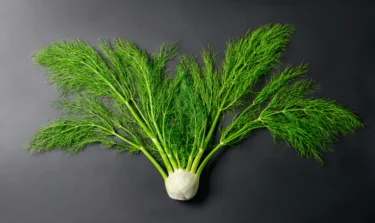
Apart from enhancing the flavor of the food, fennel offers many health benefits. Studies10 have shown that it helps reduce hot flashes, vaginal itching and dryness, and sleep.
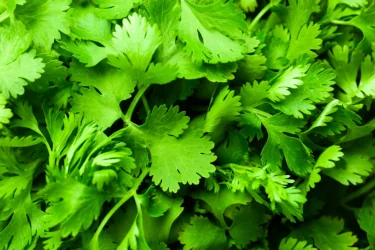
Coriander (cilantro) has more benefits than just enhancing the taste of food. It improves digestion, reduces cholesterol, keeps the urinary tract healthy, promotes better sleep, relieves anxiety, and lowers blood sugar levels11.
Also Read: Moringa Leaves – Health Benefits That You Should Know
While most people may not love leafy green vegetables such as those on this list, they are in fact extremely nutritious. Most of these leafy green vegetables are cultivated year-round, which means that they would be available at your nearest grocery market. This makes it easy to include them in your regular diet. With their many health benefits, these 20 leafy greens can be a smart and healthy addition to your everyday meals.
Also Read: 8 Unknown Benefits of Mango Leaves
Disclaimer: The information provided here is for educational/awareness purposes only and is not intended to be a substitute for medical treatment by a healthcare professional and should not be relied upon to diagnose or treat any medical condition. The reader should consult a registered medical practitioner to determine the appropriateness of the information and before consuming any medication. PharmEasy does not provide any guarantee or warranty (express or implied) regarding the accuracy, adequacy, completeness, legality, reliability or usefulness of the information; and disclaims any liability arising thereof.